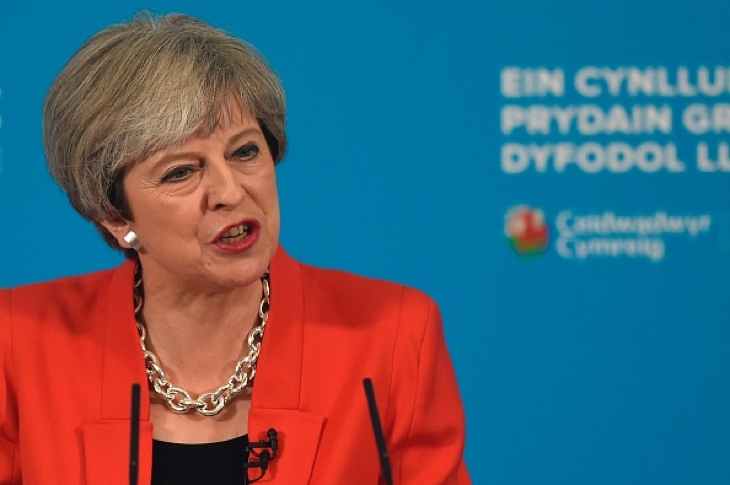This is the latest in a series of posts that could be entitled ‘things I could never say when I was a political journalist but now I can.’ Today’s topic: U-turns. The bottom line: they don’t matter, or at least, they don’t matter anywhere near as much as most of the coverage of them suggests.
Theresa May has changed her mind on social care. Political Twitter is still, as I type, in the sort of excited spasm that suggests that this is an event that will change EVERYTHING.
To some, Mrs May has shattered forever her image as a strong, steady leader. A slightly more sophisticated take suggests that she’s shattered her relationship with the Conservative Party, which will never trust her again.
I’m not convinced by either of those arguments, to be honest. I think the May brand among voters can survive this. As for relations in the Conservative Party, this will simply persuade those colleagues who believe Mrs May governs through a small, opaque clique that they were right. I doubt it will change the way she governs, not least since her approach thus far has made her PM and put her on course for a healthy general election win; weighed against those things, today’s difficulties are still small beer, and certainly no reason to panic.
Media coverage of ‘U-turns’ almost always proceeds on the implicit, possibly unconscious assumption that they are a Bad Thing: voters, it is supposed, will see the author as weak and indecisive.
Yet there’s not much evidence to support that supposition, which usually misreads causation. Simply, leaders who are already seen as weak and indecisive who then carry out U-turns will have those U-turns taken as a sign of their weakness and indecisiveness. The U-turn, if you like, confirms voters’ views, but does not change it.
Likewise, if you’re already seen as strong and decisive, then U-turning may well be seen as confirmation that you’re strong and decisive, able to admit when you’ve made a mistake and put it right. After all, the alternative is pigheadness.
My suspicion is that Mrs May will emerge from today’s excitements largely unscathed, though she should probably aim for some slightly more assured clips for the evening bulletins, repeatedly and calmly saying: ‘Some people had some worries about our proposals, so we’re going to listen to them and get this absolutely right before we do it.’
The key message is honesty: there’s nothing wrong with saying you’re changing your mind because voters were unhappy. Voters know that politicians want their votes: there’s no penalty for a politician admitting to being a politician.
The cost arises when you’re seen as dishonest about this: Gordon Brown didn’t suffer because he changed his mind about a snap election in 2007. He suffered because voters thought he was lying about it. That shattered his carefully-crafted image for being straight and honest.
Mrs May, in calling this election, clearly learned from Mr Brown’s strategic error in passing up that 2007 chance to obliterate his opponents. Now, she needs to learn from another of his mistakes.
As for the policy at the heart of this drama, I’d argue (and I recognise this view might not be shared by many Spectator readers, and especially not by the fearsome Will Heaven) that at the heart of it there remains a sensible and brave idea: that people with large, valuable assets should make some contribution to the costs of their care.
Or rather, that the children of those asset-holders should make a contribution, because that’s what it means to recoup some care costs from estates after death. It doesn’t mean taking money from the frail and elderly, since payment only comes when those people have sadly passed away. It means reducing the money that flows to their children.
Outrageous? Perhaps, but I’m afraid I don’t share our national worship of inherited wealth. Broadly, I’d rather see less tax levied on incomes (which largely reflect effort) and more on wealth (which largely doesn’t).
After all, what’s the alternative to taking care costs from the estates of those who use that care? OK, the best alternative would be to take it from all estates dependent on their size, in the form of a larger inheritance tax.
But assuming that’s not currently politically viable (I can still dream) then the only choice left is to fund care from general taxation, which will, to some extent, mean that the working poor end up paying tax to fund the care of wealthy pensioners living in large houses, and thus paying tax so that the children of those wealthy pensioners don’t have to pay tax when they inherit those houses.
Yes, Mrs May’s manoeuvring today will grab the headlines and excite Twitter, but there’s something rather more important here. As long as she sticks with a policy that raises money for care from housing assets that would otherwise be inherited tax-free, she’s heading in the right direction.







Comments